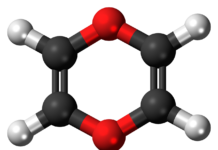
With the number of research misconduct scandals in the news, it’s hard to know what’s true and what’s false. Learn all about some basic truths about research misconduct with these 7 simple questions.
Are there different types of research misconduct?
As this is one of the first things you might wonder, research has been designed to be unbiased by nature and to be fair. There are no different types of research misconduct between journals that are based on different fields. Researchers must remain objective at all times and use methods that are not biased or try to skew data for their own benefit or for financial gain.
What is a Reviewer? Who do they think they are?
Researchers – at any level of experience – should be honest and unbiased when it comes to their analysis, findings, and conclusions. It is also important to remember that as researchers, you are entitled to your opinions, but not your own pet theories.
Who should be Reviewing my work? If I want to publish it in a journal, then the first thing I need to know is this: who was the person who originally reviewed my paper and did they have a conflict of interest? Again, that’s why journals require reviewers disclose each conflict of interest before submitting any type of research project.
What is the difference between research misconduct and fraud?
Research fraud is a much more serious offense, so you need to understand what the differences are. Research misconduct should be considered as unethical behavior that has been committed by the researcher, whereas research fraud involves falsifying data or manipulating results and publishing false or misleading information.
What about plagiarism?
Plagiarism is not a lot different than other types of research misconduct like falsifying results, withholding data from others or fabricating information. It can also include using others’ work without citing it correctly, and can get you into some serious trouble. It’s important to make sure that you cite all of your sources when conducting any type of research project or paper.
How important is ethics?I think that this question is very important because it’s easy to overlook research ethics at times. If you have to collect data on people and that’s the basis of your project, then you need to be sure that you only use participants who have given you the necessary consent forms. It’s not okay to publish other people’s data without their permission.
How can I avoid being charged with research misconduct?The best way to avoid any types of research misconduct charges is by doing what you are supposed to do all along, which is following proper guidelines and submitting quality work. Always be sure that you properly disclose any conflicts of interest before publishing any type of research project or paper.
This article was originally posted at http://blogs.scientificamerican.com/guest-blog/six-questions-about-research-misconduct/ and was written by Katie Drummond, a Senior Editor at Scientific American as part of the Scientific American Blog Network.
Read the full article to learn about information on how to avoid scientific misconduct such as plagiarism with 4 steps you can make use for your own projects and publications: http://www.osfathome.









